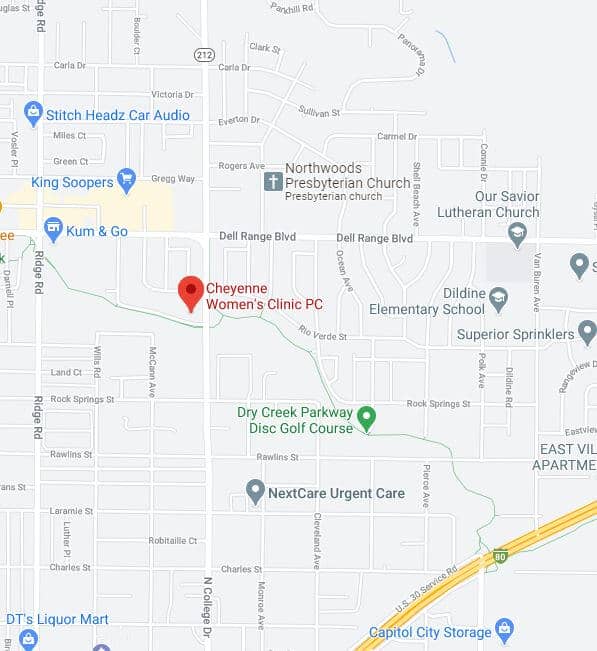Menopause is the point when your menstrual periods stop because your ovaries have stopped producing estrogen and progesterone. During the menopausal transition, also known as perimenopause, your periods may stop and then start again, which is why you are considered to have gone through menopause when you go for a full year without having a period. The average age for women to reach menopause is 51, but it could happen as early as 40 and as late as 55.
Symptoms that you are approaching menopause may include:
- Irregular periods – they may be heavier or lighter, shorter or longer, or occur more or less frequency than before
- Hot flashes
- Trouble sleeping (may be related to the hot flashes)
- Vaginal problems, such as dryness
- Urinary problems, such as increased frequency or incontinence
- Mood swings
- Osteoporosis
- Weight gain
- Forgetfulness or trouble concentrating
Most women don’t find the symptoms of menopause uncomfortable enough to seek treatment. But if you are one of those that menopause is making miserable, come talk to us. We’ll talk about issues like:
- Your menopause symptoms and how much they are bothering you.
- Risks for certain treatments like menopausal hormone therapy based on your age, your overall health, and your risk for certain diseases.
- How long you’ve been experiencing symptoms. (Are you experiencing perimenopause or complete menopause?)
Treating Menopause Symptoms
There are different treatment options, one being hormone replacement therapy. Please make an appointment if you’re interested in learning more about how this treatment may be beneficial to you – and help relieve some of your symptoms. Changes in your body that happen around the time you experience menopause could leave you susceptible to certain health problems such as weight gain and an increased risk of heart disease, stroke, and osteoporosis. To help stay healthy:- Eat well – You’ll need more nutrients like vitamin B and calcium, but most likely fewer calories.
- Be active – Exercise helps your body and your mind.
- Quit smoking and avoid secondhand smoke.
- Take care of your gynecological health – Your pelvic exams, Pap tests, and mammograms are still important.
- Ask your doctor or PA about immunizations and screenings – Flu shots, bone density exams, and blood pressure tests may be important to maintaining good health.
If you have any questions about menopause, its symptoms, or its treatments, please don’t hesitate to schedule an appointment with one of the Cheyenne Women’s Clinic providers. Make an appointment by calling 307.637.7700.







